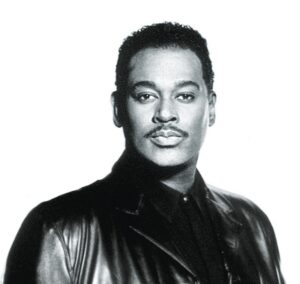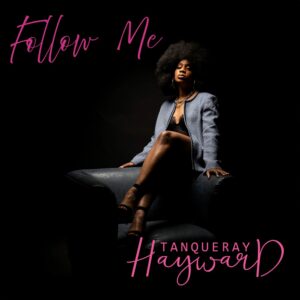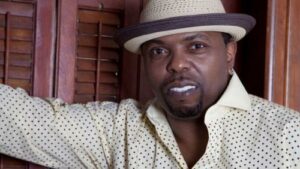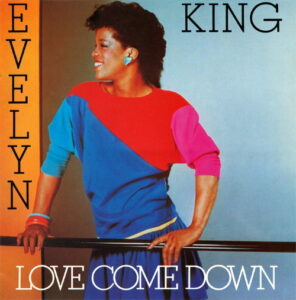 Excuse us while we wax philosophical for a moment about a brewing cultural battle. We promise our language will return to earth in short order. Now, what’s in a name? Who gets to decide what to name what the “thing” is eventually called, and does that naming give that person or people ownership of that which they have—or took—the privilege of naming? As with most concerns, maybe it goes back to the parents, when mothers and fathers put their heads together and determine their child’s name, a new creation that is the owners’ privilege to name. Despite more progressive sentiments that have emerged in recent years, most parents believe they own the children they name, determining their direction, and making decisions about their future. Take that timeless, parental idea of owning that which you name and having domain over its future, and it’s no wonder African Americans have been seemingly obsessed with getting to name themselves since the ownership days of slavery, abandoning the less charitable label of “coloreds” and “Negro” for “Black,” “Afro-American,” and ultimately “African-American” for these last generations. They aren’t alone, from gay Black men (same gender loving) to drag queens (transgender); many have claimed the right to name what they own, namely themselves. And, in the naming, claiming the right to self-determine their future.
Excuse us while we wax philosophical for a moment about a brewing cultural battle. We promise our language will return to earth in short order. Now, what’s in a name? Who gets to decide what to name what the “thing” is eventually called, and does that naming give that person or people ownership of that which they have—or took—the privilege of naming? As with most concerns, maybe it goes back to the parents, when mothers and fathers put their heads together and determine their child’s name, a new creation that is the owners’ privilege to name. Despite more progressive sentiments that have emerged in recent years, most parents believe they own the children they name, determining their direction, and making decisions about their future. Take that timeless, parental idea of owning that which you name and having domain over its future, and it’s no wonder African Americans have been seemingly obsessed with getting to name themselves since the ownership days of slavery, abandoning the less charitable label of “coloreds” and “Negro” for “Black,” “Afro-American,” and ultimately “African-American” for these last generations. They aren’t alone, from gay Black men (same gender loving) to drag queens (transgender); many have claimed the right to name what they own, namely themselves. And, in the naming, claiming the right to self-determine their future.
But, what of naming what you artistically produce? Do you own it? Do you own the cultural artifacts that you create? Copyright law says “yes,” but that only covers the specific product, not the cultural. What if what is produced flows right from out of the originators’, the parents’ hands, by hook and definitely by crook, into the ethers of the broader culture? Do you still have naming rights once your cultural creations bleed into the mainstream as the decades roll by, and with everyone who riffs off of your creation claiming ownership, with some giving attribution to the cultural originators, some…well, not so much? Do you, as the great grandchildren of the originators and the continued torchbearers of its traditions, ever lose the right to name it and remind the rest of the world of your ancestral claim?
It all may sound like high-brow philosophy, but this is the subtext of the growing debate over Grammy-winning recording artist and black trumpeter Nicholas Payton’s movement and his push that musicians and consumers abandon the old segregating marketing labels of jazz, blues, R&B, hip hop, neo-soul and soul for usage of the phrase #BAM or Black American Music for the sale and labeling of music born out of the Black experience. But, does he have the right?
Well, if not the successive inheritors of the music Black people and their culture created, including genres commercial interests would later coin jazz, blues, soul, gospel and their progeny of funk, hip hop, neo-soul, electro-soul, new jack swing and rhythm and blues, then who? The rapidly declining major labels? The self-imploding terrestrial radio? Hardly seems fair to let naming rights stay among those who can barely keep their doors open and fortunes bright, especially with the larcenous history of black exploitation profited by both entities. Further, with so many contemporary artists borrowing from so many genres in the cultivation of new music, do those old marketing distinctions often created by record labels even mean anything anymore? Hybrid music crafting artists seem to be cropping up everywhere, giving reviewers everywhere an incredible headache in trying to describe it all with any great specificity (electro-blues funk anyone?). However the music is mashed, these are all sounds founded in the Black American experience and each has an undeniable relationship to the others, often successors of ideas that began in the Southern and urban roots of blues and gospel. Others have argued that whatever the music’s founding, Black American Music has since evolved into an international music belonging to no one. It is now created and produced by people and cultures around the world, many of whom have little to no understanding of the origins and legacy of Black American Music’s musicology, much less its people, that is, beyond the music’s most commercially popular names.
Yet, there doesn’t seem to be something right about that, particularly when one considers rock, a music created by blacks and born of the blues, which has since become an almost exclusively white-dominated music genre with an audience that would often be surprised to learn that their beloved music was created by blacks and once dominated by them too. Now black rockers find themselves virtually locked out commercially of the genre their forefathers and foremothers helped create, with only a handful of exceptions to break-through this rule, like Slash, Lenny Kravitz and Fishbone. There is an oft-discussed pervasive fear among some blacks that other musical genres founded by black people may too lose their origin story and cultural identity in the public marketplace, one day barring them from capitalizing off those genres too. Naming all the remaining un-co-opted music founded by blacks forever imprints those sounds with their true cultural legacy, no matter who is performing it around the globe. With BAM, no one can ever say again that the music was anything but black, even if the person performing it is Chinese.
For some musicians, that means a great deal. The BAM movement is more than about naming. it’s about ownership, making it clear that while all are welcome to perform BAM, fans and consumers should note that these artists are merely leasing the cultural products from which they’re borrowing. And in the naming comes a feeling of returned ownership, and in that ownership the sense that control of BAM’s musical direction and destiny returns to the hands of its cultural creators. The latter may be a stretch, given the slippery, porous nature of culture and its ability to bend to no one’s will, even its originators.
Starting all of this kerfuffle sits Nicholas Payton, who wants to see Black artists reclaim their cultural birthright through this naming. While initially focused on Payton’s performed genre of jazz, a term he’s now calls “the J-word” and declared “uncool” on his Twitter account and blog site, the movement has since expanded to include the music of artists whose sounds borrow from it all, from Gregory Porter and Robert Glasper to Bilal and Diggs Duke. With international artists like Laura Mvula, Fetsum, Josephine, and Lianne La Havas bridging genres all over the place in their debut releases, creating hybrid sounds termed everything from world and retro-soul to urban folk and ???, Payton may be on to something in simplifying it all as simply BAM. He is certainly intent on spreading the gospel of its benefits, despite considerable pushback from artists, both black and white, who argue BAM polarizes people and implicitly says the only people who can perform these various genres are black people. But, Payton has argued nothing of the sort, in interview after interview he has made clear he just wants to make sure the public is clear from whence this music came and to reunify the bridges across genres that radio and record label music executives arbitrarily, artificially and even arrogantly classified in an effort to market the music as niche to a niche audience, none of which makes as much sense anymore, if it ever did. Whether BAM works or not, musicians are already giving themselves permission to no longer create music hemmed in by the demands of a single genre or even two, instead using a myriad of sounds available in the service of their musical visions—radio, outlets and record labels be damned.
Payton isn’t the first to try to rename black music. For years artists like Peven Everett, Eric Roberson, and Anthony David pushed the phrase “honest music” to describe what would ordinarily be called R&B/soul but was certainly articulating more than the conventions those genres dictated. And, in the mid-90s through the early 2000s, there was a serious open debate about the labeling of ‘70s-inspired new soul products, “neo-soul,” with many of those tagged under that banner feeling ghettoized by a marketing label that didn’t always neatly fit the music they were performing or even wanted to perform.
So, there are precedents for what Payton is championing, but none have gone so far as to provide instructions to force sellers’ hands. Payton named his 2007 album #BAM His February 26, 2013 article “#BAM: How To Participate in the Black American Music Movement” guides those interested in participating in BAM to go to outlets like CDBaby.com and type “BAM” or “Black American Music” in the search options of those outlets, not just once but daily (or at least monthly) as a way to get music outlets to respond to Payton and his adherents efforts to their petitions to categorize black music as BAM. There are sure to be more instructions for movement members with regard to radio, labels, and major music outlets. Those interested in this change should follow Payton through his blog and social media platforms to keep abreast of further calls-to-action. For our part, here at SoulTracks, readers shouldn’t be surprised when “BAM” crops up in a review as a way to describe music that is so hybrid, any other terminology just confuses. More than honoring the legacy of the music we cover, in the end aren’t we all just looking to simplify what has gotten so needlessly complex? Welcome to #BAM.
By L. Michael Gipson
.









